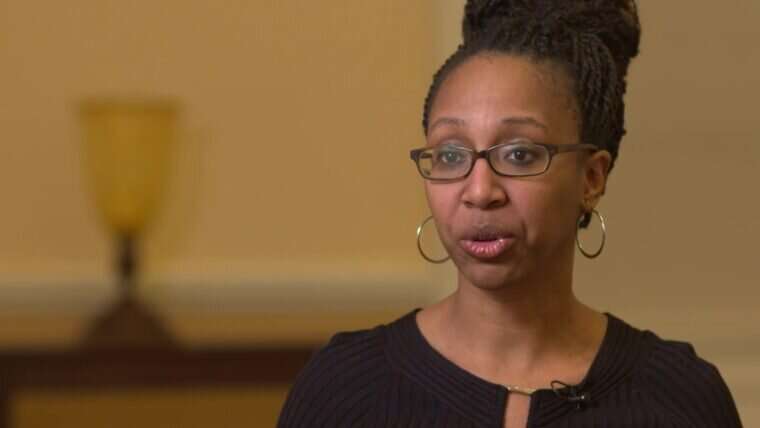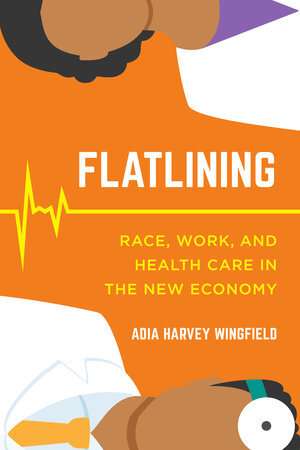Unraveling complicated issues of inequality in workplaces, communities

African American health care workers are there for a reason.
A new book by a Washington University in St. Louis social scientist shows how hospitals, clinics and other institutions participate in "racial outsourcing," relying heavily on black doctors, nurses, technicians and physician assistants to do "equity work"—extra labor that makes organizations and their services more accessible to communities of color.
"There's been a sense for black Americans that their experiences are either this constant drumbeat of discrimination, or that are able to escape the racial issues that may plague their working class or lower class counterparts," said Adia Harvey Wingfield, professor of sociology in Arts & Sciences.
"I don't think that either of those stories are necessarily true, and researching these questions and topics is a way and an opportunity to delve into them more quickly and get into the gray area."
In Wingfield's new book, Flatlining: Race, Work, and Health Care in the New Economy, she takes a deep dive into the role of African American health care workers. She talks about it in a Q&A:
What is racial outsourcing?
Racial outsourcing is a term I coined to explain how organizations perpetuate racial inequality in a changing economy. As neoliberal ideals and policies have become more dominant, the relationship between organizations and workers has shifted. Companies now see labor as a cost to be cut, and shift many more costs and responsibilities, like health care and retirement, on their workers.
At the same time, many corporations acknowledge the importance of appealing to a rapidly diversifying consumer base, which creates a tension. How do organizations both minimize costs associated with labor while dealing with a customer base that is growing increasingly black, brown and Asian?
My research shows that they do this through a process I call racial outsourcing, wherein they shift this work of making companies more accessible to minority communities onto black professionals. Racial outsourcing can be implicit (expected but not openly mandated) or explicit (clearly stated and defined), but ultimately it creates a mechanism of racial inequality, wherein black professionals are doing additional work that is largely uncompensated, unrecognized and unrewarded.
How does equity work impact employees of color?

First, I should define what I mean by equity work. I use this term to refer to the labor that black professionals do in response to racial outsourcing. When corporations assign black professionals with the responsibility of making organizations more welcoming and available to communities of color, black workers frequently do the equity work of trying to make institutional changes that will benefit minority populations. Black doctors do equity work at the structural level by trying to address institutional barriers that lower the numbers of black workers in medicine. For black nurses, equity work takes the form of becoming a "change agent" to advocate for patients who are otherwise likely to be overlooked in the system. And black technicians do equity work by leveraging their cultural capital on behalf of minority patients.
This work is important, but it takes a toll on black professionals. It leaves them mistrustful of, and alienated from, the organizations that they suspect are exploiting their labor. And for black women, this takes on racial and gendered connotations—they describe feeling like "mammy," the archetypal figure who toils endlessly for white families at the expense of her own. Equity work also distances black professionals from their white colleagues, whose racial stereotyping and assumptions are often a catalyst for this labor.
What challenges must black employees overcome to address the issue of equity work?
As I mentioned, equity work leaves black professionals feeling alienated, exploited and mistrustful of both the institutions where they work and their white colleagues. This presents a particular challenge for workplaces, as black workers are doing additional labor to service an important and growing segment of their customer base, and because many organizations now assert that they want to be more intentional about creating more racial diversity among their workforce.
So having a few black workers in their employ who are doing additional, uncompensated labor—and who are aware of and frustrated by that fact—is not ideal for either black professionals or the institutions that employ them. There are potential solutions to this issue, but it's important to stress that these are likely most effective at the organizational and policy level. In other words, it shouldn't be up to black workers to try to solve this issue of equity work themselves.
What role does job insecurity play in all of this?
Job insecurity is a factor here, but an indirect one. It's not that black workers do this equity work because they are afraid of being dismissed from their jobs. And even in an economy where jobs are much less secure than they have been in the past, most black professionals in my study didn't worry too much about finding work. They were aware that, in a knowledge economy, they had more job stability than most. This is particularly true for nurses, physician assistants and nurse practitioners. What is notable, however, is that even though they know that they are not constrained by limited occupational options, they often made an intentional and deliberate choice to work in the public sector. Black health care workers do this despite knowing that work in public sector facilities means lower wages and fewer resources than the private sector.
Provided by Washington University in St. Louis

















